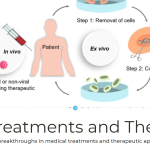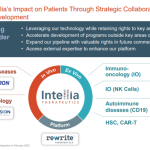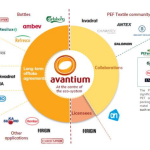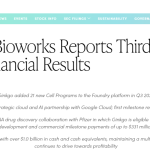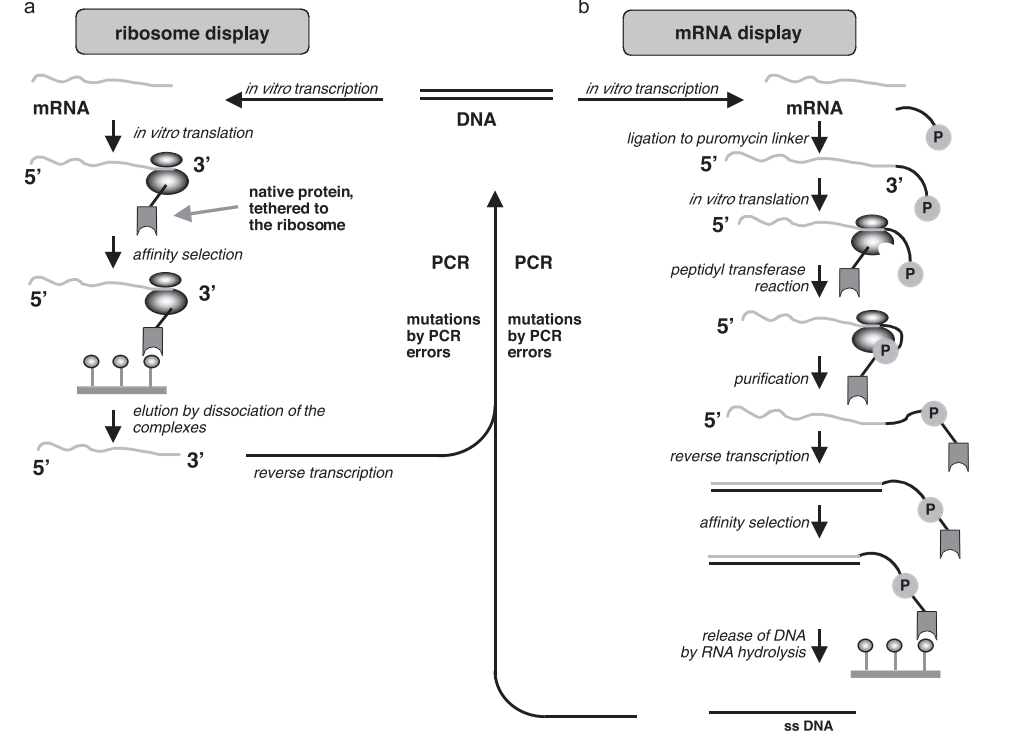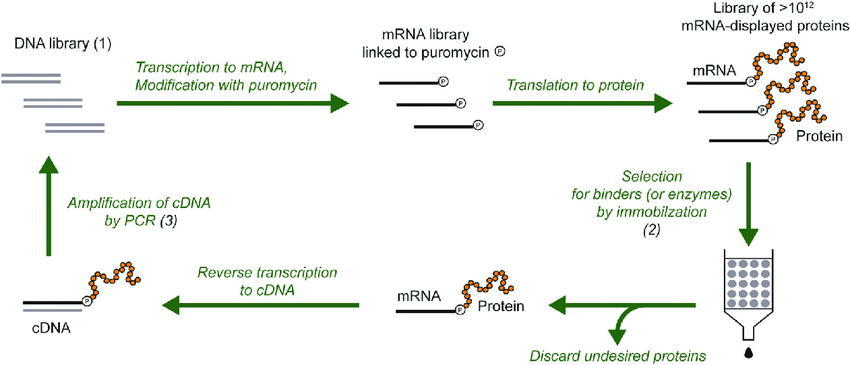Every leap forward in technology is drawing a blueprint for the future. Among the many scientific and technological innovations, biotechnology, with its unique charm and far-reaching impact, is gradually becoming a key force to promote global progress.
It has not only revolutionized the healthcare sector, but has also shown its unlimited potential in a variety of industries such as agriculture, energy, and environmental protection.
Healthcare: Gene therapy, a pioneer in precision medicine
Imagine a therapy that precisely locates and destroys cancer cells, and that’s what NKILT Therapeutics is doing. Their technology works by modifying immune cells to allow them to directly target and destroy leukemia and solid tumor cells. This breakthrough therapy not only improves the precision of treatment, but also dramatically reduces the damage to healthy cells.
In addition, Luzsana Biotechnology is developing targeted drugs that provide cancer patients with more personalized and effective treatment options through a combination of gene therapy and immunotherapy. These drugs are designed to directly target the underlying cause of the disease, reduce the side effects of traditional treatments, and improve the quality of life of patients.

Related Services
Bacterial Metabolic Engineering
Bacillus Subtilis Metabolic Engineering
Pseudomonas Metabolic Engineering
Food & Beverage: Fermentation Technology, a New Revolution in Gastronomy
In the food and beverage industry, the application of biotechnology is changing the way we produce and consume food. MeatLeo uses plant cell culture technology to create a completely new alternative to meat. Not only is this plant-based meat comparable to conventional meat in taste and nutrition, but it also has a much lower environmental impact during production. This innovative production method reduces animal dependence and lowers greenhouse gas emissions, while also meeting the growing consumer demand for sustainable food.
Pharmaceutical: Biopharmaceutical, a new era in drug discovery
Advances in biotechnology have brought new opportunities for drug discovery. Through recombinant DNA technology and high-throughput screening, scientists are able to identify and develop new drug candidates faster. The application of these technologies not only accelerates the discovery of new drugs, but also helps to develop safer and more effective treatment options. For example, with gene editing technologies such as CRISPR-Cas9, researchers are able to precisely modify genes to treat genetic diseases or improve the efficacy of drugs.

Agriculture: Genetically modified crops, the future of agriculture
In the field of agriculture, the application of biotechnology is helping farmers to increase crop yields and reduce losses. Through tissue culture technology, Thomas Biotech produces disease-free, high-quality crops that not only increase farmers’ yields and profits, but also reduce the use of chemical pesticides to protect the environment and human health. In addition, genetically modified crops can also improve the nutritional value and shelf life of crops, providing consumers with better food choices.

Energy: Microbial batteries, new exploration of green energy
The energy industry is also using biotechnology to find sustainable solutions. Voltaplant develops plant microbial fuel cells that use the natural electrical properties of plants to generate electricity. This innovative technology provides a new, sustainable source of electricity for remote areas, while also contributing to the reduction of greenhouse gas emissions. This technology will not only provide a stable supply of electricity, but it will also facilitate the decentralization of energy and bring light to communities far from the traditional power grid.

Oil & Gas: Environmentally Friendly Solutions
In the oil and gas industry, biotechnology is used to improve operations and mitigate environmental impacts. Kvasir Technologies uses biotechnology to convert plant-based biomass into a carbon-neutral biofuel that can be used as an alternative fuel to existing ships without any modifications, providing a gradual path to full decarbonization. This biofuel will not only reduce dependence on fossil fuels, but also reduce the carbon footprint of the transportation sector.

Cosmetics: a combination of beauty and environmental protection
The cosmetics industry is also using biotechnology to extract and produce active ingredients. Olga Cola uses biotechnology-extracted enzymes, bacteria, and yeast to develop highly bioavailable skincare products. These products are not only skin-friendly, but also environmentally friendly, providing consumers with options that go hand in hand with beauty and sustainability. Through the use of natural ingredients and biotechnology, Olga Cola is redefining sustainability standards in the cosmetics industry.
Nanotechnology: a new tool for precision medicine
In the field of nanotechnology, the application of biotechnology is helping scientists develop more precise drug delivery systems. Combining biotechnology and nanotechnology, Puxano accelerates structure-based protein research, providing a powerful tool for the development of new drugs. By manipulating biomolecules at the nanoscale, researchers are able to more precisely control the release and action of drugs, thereby improving treatment efficacy and reducing side effects.

Environmental Remediation: Bioremediation Technologies, Green Guardians
Environmental protection agencies are using bioremediation techniques to clean up pollutants. DND Biotech provides a cost-effective and environmentally friendly method of contamination cleanup by using naturally occurring strains of microorganisms that are able to effectively degrade contaminants. By selecting microbial strains that are adapted to specific polluted environments, DND Biotech’s technology is able to reduce pollutant concentrations more efficiently while protecting and restoring biodiversity.

Waste management: organic waste conversion, a new way to circulate
The field of waste management is also undergoing a biotechnology revolution. BioLoop uses black soldier fly larvae to digest and transform organic waste, turning it into high-quality animal feed and nutrient-dense compost. This process not only reduces the amount of waste sent to landfills, but it also reduces greenhouse gas emissions. In this way, BioLoop offers an innovative solution for the sustainable management of organic waste.

